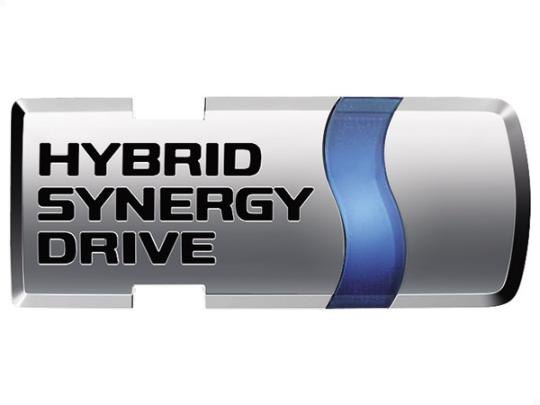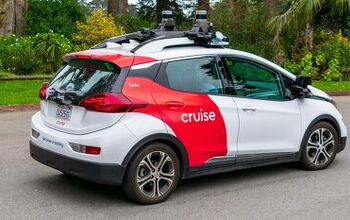Toyota Hybrids Facing US-Market Ban?
Bloomberg reports that the US International Trade Commission has launched a probe of alleged patent violations which could result in the banning of all Toyota hybrids from the US market. Paice LLC won a 2005 civil suit against Toyota, in which Paice’s founder Alex Severinsky sought a court order banning the sale of Toyota’s Prius, Highlander and Lexus RX400h hybrids. Instead, an appeals judge awarded Paice $4.3m in damages, and ordered Toyota pay Paice a $100 royalty per hybrid sold in the US. In the current case before the ITC, Paice claims that Toyota’s Camry, third-generation Prius, Lexus HS250h sedan and Lexus RX450h are “are materially the same” and violate the same patents as those in its first case. If Paice can convince the ITC that Toyota indeed violated its patents, he will still need to prove that the little-known company has a market to protect. But Paice doesn’t actually want Toyota to be banned from selling cars. In the words of one patent attorney, an “injunction would have given Paice strong leverage to negotiate a lucrative licensing deal with Toyota…Paice always felt that their technology was worth a lot more than [$100 per car] to Toyota.”
Independent patent lawyer Michael Murphy explains Toyota’s patent violation thusly:
At its heart, it’s the cooperative dual management of the internal combustion and the electric motor. Either one is a candidate at any time for providing some of the torque or all of the torque needed to spin the drive wheels. What Paice says is its real innovation is in the fusing of the two, the seamless management of torque from either or both drive inputs….
If all you were doing was switching from an electric mode to a gas mode, you wouldn’t have infringement. In other words, you wouldn’t have infringement if you made a crude hybrid system that said we’re either running on batteries or we’re running on the gas engine, but never both.
The real point of [Paice’s claimed] sophistication is where you get torque. It may be, under certain conditions, it’s more efficient to get torque from the electric motor. Under other conditions, it’s more efficient to get that from the gas engine. And under other conditions, you want to seamlessly blend torque from both sources.
[Paice would] say their microprocessor-based controller looks at engine speed, motor speed, battery voltage, battery charge, ambient temperature, acceleration, direction, deceleration—all of those things—to make a decision about how much of the torque should be supplied by the engine versus the electric motor. That’s the heart of it. If it was an either-or system, Toyota wouldn’t be in court. Also, it wouldn’t be a very efficient hybrid system.
Read a complete interview with Murphy at hybridcars.com.
More by Edward Niedermeyer
Latest Car Reviews
Read moreLatest Product Reviews
Read moreRecent Comments
- Akear Does anyone care how the world's sixth largest carmaker conducts business. Just a quarter century ago GM was the world's top carmaker. [list=1][*]Toyota Group: Sold 10.8 million vehicles, with a growth rate of 4.6%.[/*][*]Volkswagen Group: Achieved 8.8 million sales, growing sharply in America (+16.6%) and Europe (+20.3%).[/*][*]Hyundai-Kia: Reported 7.1 million sales, with surges in America (+7.9%) and Asia (+6.3%).[/*][*]Renault Nissan Alliance: Accumulated 6.9 million sales, balancing struggles in Asia and Africa with growth in the Americas and Europe.[/*][*]Stellantis: Maintained the fifth position with 6.5 million sales, despite substantial losses in Asia.[/*][*]General Motors, Honda Motor, and Ford followed closely with 6.2 million, 4.1 million, and 3.9 million sales, respectively.[/*][/list=1]
- THX1136 A Mr. J. Sangburg, professional manicurist, rust repairer and 3 times survivor is hoping to get in on the bottom level of this magnificent property. He has designs to open a tea shop and used auto parts store in the facility as soon as there is affordable space available. He has stated, for the record, "You ain't seen anything yet and you probably won't." Always one for understatement, Mr. Sangburg hasn't been forthcoming with any more information at this time. You can follow the any further developments @GotItFiguredOut.net.
- TheEndlessEnigma And yet government continues to grow....
- TheEndlessEnigma Not only do I not care about the move, I do not care about GM....gm...or whatever it calls itself.
- Redapple2 As stated above, gm now is not the GM of old. They say it themselves without realizing it. New logo: GM > gm. As much as I dislike my benefactor (gm spent ~ $200,000 on my BS and MS) I try to be fair, a smart business makes timely decisions based on the reality of the current (and future estimates) situation. The move is a good one.


































Comments
Join the conversation
[...] you guys gonna do when you cant buy your prius or parts to support it here. Have you all seen this Toyota Hybrids Facing US-Market Ban? | The Truth About Cars "Toyota Faces Patent-Violation Claims That Could Ban Import of Its Hybrids Into U.S." [...]